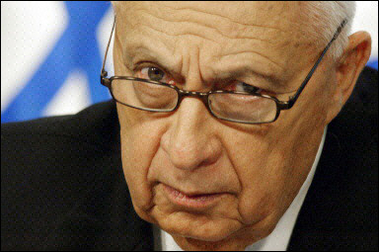|
Tracheotomy to help wean Ariel Sharon off respirator
(AP)
Updated: 2006-01-16 09:45
Israeli Prime Minister Ariel Sharon underwent a successful tracheotomy Sunday
evening to help wean him off a respirator that has been helping him breathe
since he suffered a massive stroke January 4, hospital officials said, but
Sharon's failure to regain consciousness was drawing increasing concern.
The surgery took less than an hour and followed a CT scan that showed no
changes in his brain. Though Sharon was taken off sedatives Saturday, he had not
regained consciousness more than a day later. The hospital continued to describe
his condition as critical but stable.
His stand-in, Acting Prime Minister Ehud Olmert, will remain in his post
until Israel's election on March 28, according to a ruling Sunday by
Attorney-General Meni Mazuz. He sidestepped a ruling that Sharon would be
permanently incapacitated, requiring the Cabinet to name a replacement.
Sharon had to undergo the tracheotomy procedure to insert a plastic tube in
his windpipe because the former tube to a respirator would have started to cause
damage if it remained in place, said Dr. Philip Stieg, chair of neurosurgery at
the Weill-Cornell Medical College in New York.

Israeli Prime Minister Ariel Sharon, seen here
in January 2005. [AFP/file] | Sharon's comatose state and the fact that he was undergoing the tracheotomy
do not bode well for the prime minister's future, Stieg said. It is becoming
more probable as time passes that Sharon will either remain in a vegetative
state or have low cognitive abilities, he said.
"It suggests that the brain damage is as serious as we thought it was based
on earlier reports and now its all playing out," Stieg said. "He's not turning
the corner, he's not waking up ... they're having to do more things to keep him
alive."
In Olmert's first major step, he led his Cabinet to a unanimous decision
Sunday to allow Palestinians in Jerusalem to vote in a January 25 parliamentary
election, clearing away an obstacle that threatened to cause postponement of the
vote for a new Palestinian legislature.
The Cabinet decision _ which came in the wake of U.S. pressure _ said the
voting could proceed as long as armed groups, such as Hamas, were not on the
ballot. The vote would be held under a compromise used in previous elections
that allowed Jerusalem Arabs to cast absentee ballots in post offices.
"I welcome this decision," Palestinian negotiator Saeb Erekat said. However,
in a phone conversation with U.S. Secretary of State Condoleezza Rice,
Palestinian leader Mahmoud Abbas complained about Israel's restrictions. "All
candidates should have freedom of movement, freedom to campaign," he said,
according to his office.
Hamas spokesman Sami Abu Zuhri termed the decision as "unacceptable," but
said it would not put off the elections. "We don't need Israeli permission to
participate in the elections," he said.
Hamas is expected to make a strong showing in the election, appealing to
Palestinians angry at the ruling Fatah Party's corruption and inability to
maintain order in Palestinian areas.
|